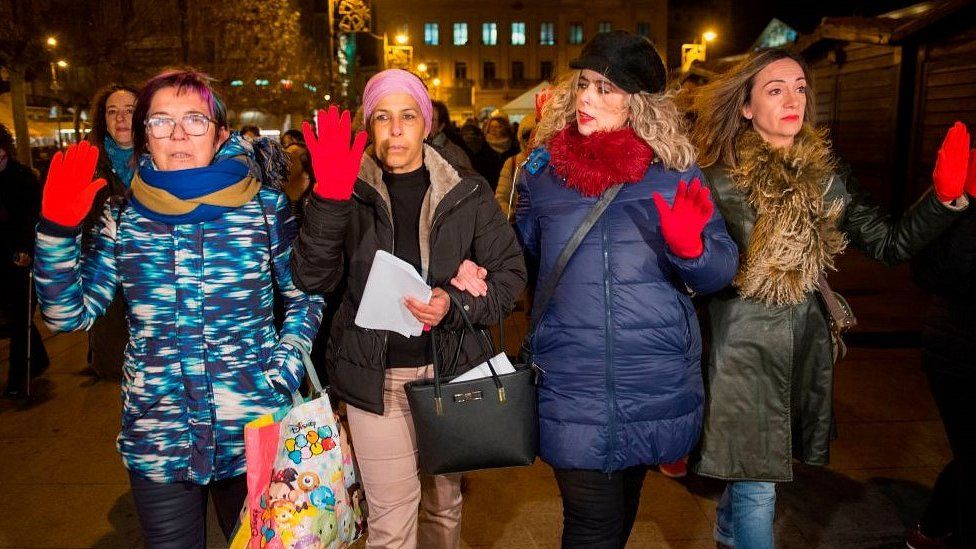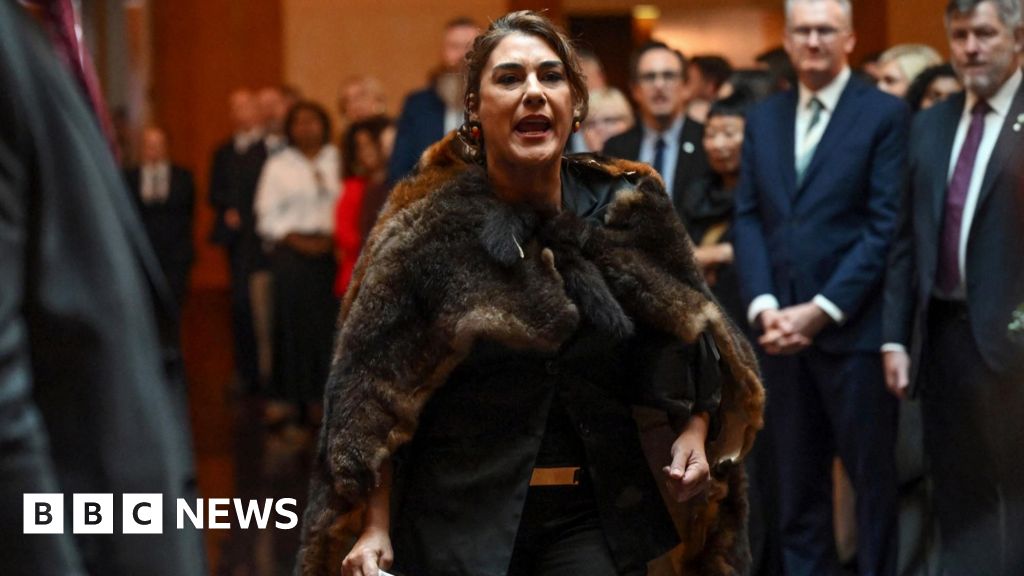ARTICLE AD BOX
 Image source, AFP
Image source, AFP
Spain saw big protests in 2018-19 as many saw the Pamplona "wolf pack" verdict as too lenient
By Laurence Peter and Guy Hedgecoe
BBC News, London and Madrid
A row has erupted in Spain after it emerged a landmark law to toughen penalties for sex crimes is being used by lawyers to reduce clients' existing sentences.
The "only yes means yes" law was prompted by the notorious 2016 Manada or "wolf pack" case, when five men raped an 18-year-old woman in Pamplona.
The new law took effect last month.
But, according to Spanish media, at least four sex offenders can now leave jail early as a result of the change.
Lawyers have also won sentence reductions for convicted abusers in at least eight other cases.
A lawyer for the Manada gang, Agustín Martínez, has also revealed he was working to get a reduced sentence for one of the five convicted of the attack.
This is because the Spanish criminal code states that when a new law is introduced, new sentences contained within it can be retroactively applied to convicted criminals if they stand to benefit.
So in some cases, lawyers argued that the new law established lower minimum sentences, and that the original sentences should therefore be reduced.
Spain's Equality Minister Irene Montero, who steered the new law into effect, defended it by saying "machismo may make some judges apply the law incorrectly".
This row is particularly uncomfortable for the leftist coalition government under Prime Minister Pedro Sánchez, as gender equality has been a major policy focus since taking power in early 2020.
The new law was one of the government's landmark reforms, prompted by widespread outrage after the five were found guilty of sexual abuse, but not rape, and got nine-year jail sentences during their initial trial. After mass protests, the Supreme Court in 2019 increased the jail terms to 15 years.
At the original trial, the men had been cleared of rape on the grounds that neither violence nor intimidation had been used.
Spotlight on consent
The new Guarantee of Sexual Freedom law stipulates that victims no longer have to prove that they suffered violence or intimidation, or that they physically resisted, in order to show that they have suffered a sexual assault. Any sexual act without consent will be liable to be deemed assault.
Amid controversy over the recent sentence reductions, Finance Minister María Jesús Montero said she thought the issue needed to be reviewed "because evidently the goal... wasn't to lower the sentences for abuse of minors - quite the opposite".
Activists say rage over the "wolfpack" case ignited a feminist revolution (Video from 2019)
In one recent case, a man jailed for eight years for having sexually abused his 13-year-old stepdaughter had his sentence cut by two years, by a Madrid court.
A man who raped a 67-year-old woman in her own home was jailed for three years and 10 months, but a Barcelona court ruled that, under the new law, his sentence should be between two and four years.
In Majorca, two sex abusers jailed for three years can now go free, a court has ruled, because they have already served two years.

 2 years ago
25
2 years ago
25








 English (US)
English (US)